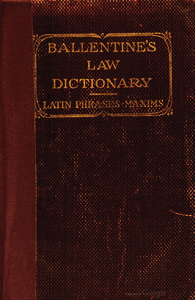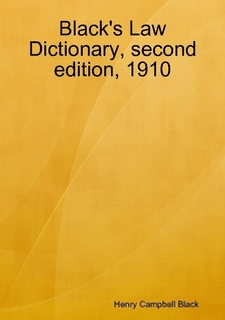The avoidance of a legacy by an act of the testator. See 95 Am. St. Rep. 343.
Definition of Ademption
-
Ballentine's Law Dictionary
-
Black's Law Dictionary: 2nd Edition
The revocation, recalling or cancellation of a legacy, according to the apparent intention of the testator, implied by the law from acts done by him in his life, though such acts do not amount to an express revocation of it. Kenaday v. Sinnott, 179 U. S. 606, 21 Sup. Ct. 233, 45 L. Ed. 339; Burnham v. Comfort, 108 N. Y. 535, 15 N. E. 710, 2 Am. St. Rep. 462; Tanton v. Keller, 167 III. 129, 47 N. E. 376; Cowles v. Cowles, 56 Conn. 240, 13 Atl. 414. "The word 'ademption' is the most significant, because, being a term of art, and never used for any other purpose, it does not suggest any idea foreign to that intended to be conveyed. It is used to describe the act by which the testator pays to his legateej in his life-time, a general legacy which by his will he had proposed to give him at his death. (1 Rop. Leg. p. 365.) It is also used to denote the act by which a specific legacy has become inoperative on account of the testator having parted with the subject." Langdon v. Astor, 16 N. Y. 40. Ademption, in strictness, is predicable only of specific, and satisfaction of general legacies. Beck v. McClillis, 9 Barb. (N. Y.) 35, 56; Langdon v. Astor, 3 Duer (N. Y.) 477, 541. adjunctio, (q. v.) Called aiso ferruminatio. Mackeld. Rom. Law, § 276; Dig. 6, 1, 23, 5.

